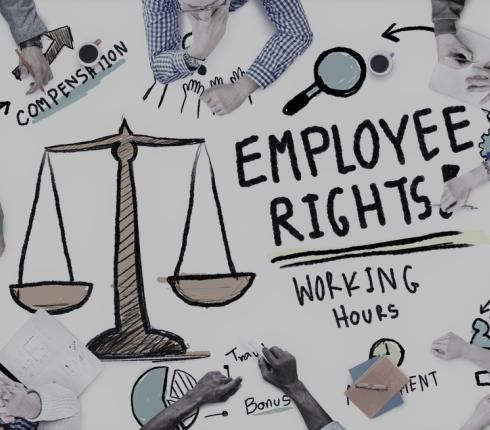NEW RULES ON EMPLOYMENT CERTIFICATES IN DENMARK
On 11 May 2023, the Danish Parliament adopted a bill on amendments of the rules governing employment certificates and other working conditions. The new rules enter into force on July 1, 2023. As a consequence, many Danish employers have already begun preparing for the new rules, including a review of employment contracts and HR policies to determine which alterations may be necessary to comply with the new legislation.
THE NEW ACT ON EMPLOYMENT CERTIFICATES
The new regulation reflects a political desire to promote more transparent and predictable working conditions for employees, and the changes are based on an EU-directive with the same agenda. As a result, more employees will in the future be entitled to receive an employment certificate, and further information must be granted on the employment relationship. Lastly, the new legislation also provides some minimum requirements in relation to working conditions.
MORE EMPLOYEES WILL BE COVERED BY THE ACT
From 1 July 2023, the requirements outlined in the Act on Employment Certificates shall apply to workers who have an employment relationship equal to or more than 3 hours of work per week in a reference period of 4 weeks.
EXTENDED OBLIGATION TO PROVIDE INFORMATION ON THE EMPLOYMENT RELATIONSHIP
Currently, an obligation to provide information on the employment relationship already applies. However, this is significantly extended with the new Act.
From 1 July 2023, employers must inform employees on:
- the identities of the parties to the employment relationship;
- the place of work; where there is no fixed or main place of work, the principle that the worker is employed at various places or is free to determine his or her place of work, and the registered place of business or, where appropriate, the domicile of the employer;
- the title, grade, nature or category of the work for which the worker is employed; or a brief specification or description of the work;
- the date of commencement of the employment relationship;
- in the case of a temporary employment relationship, the end date or the expected duration thereof;
- in the case of temporary agency worker, the identity of the temporary-work agency, as soon as the agency is known;
- the duration and conditions of the probationary period, if any;
- the amount of paid leave to which the worker is entitled;
- the length of the period of notice to be observed by the employer and the worker or the rules regulating the notice period.
- the initial basic amount, any other component elements, the frequency and method of payment of the remuneration to which the worker is entitled;
- the length of the worker's standard working day or week and any arrangements for overtime and its remuneration;
- if the work schedule is entirely or mostly variable, the principle that the work schedule is variable, the amount of guaranteed paid hours, the remuneration of work performed in addition to the guaranteed hours and, if the work schedule is entirely or mostly determined, by the employer:
- the reference hours and days within which the worker may be required to work;
- the minimum advance notice the worker shall receive before the start of a work assignment;
- any training entitlement provided by the employer;
- any collective agreements governing the worker's conditions of work; in the case of collective agreements concluded outside the business by special joint bodies or institutions, the name of the competent body or joint institution within which the agreements were concluded;
- the social security institution(s) receiving the social contributions attached to the employment relationship and any protection relating to social security provided by the employer.
All new requirements implemented with the new Act on Employment Certificates are marked with green in the above.
SHORTENED DEADLINE FOR PROVIDING THE INFORMATION
Employers must give the above-mentioned information within 7 calendar days with the exemption of the information on 1) the identity of the temporary-work agency, 2) the amount of paid leave to which the worker is entitled, 3) the period of notice, 4) the entitlement to training and 5) information on collective agreements governing the employment relationship. Information on these must be given within the first calendar month of the employment relationship.
MINIMUM REQUIREMENTS RELATING TO WORKING CONDITIONS FOR EMPLOYEES
The new rules on employment certificates further implements 6 new minimum requirements relating to working conditions for all employees regardless of whether their employment commenced before or after 1 July 2023, i.e.
- Maximum duration of any probationary period of 6 months, and in case of a temporary employment relationship, no more than ¼ of the total duration of the employment relationship. Please note that this does not apply to employees covered by the Danish Salaried Employees Act.
- A right to parallel employment provided the parallel employment not being incompatible with the employment relationship the employee has already entered, e.g. due to the protection of business secrets or the avoidance of conflicts of interests.
- Where a worker's work schedule is entirely or mostly variable and entirely or mostly determined by the employer, the worker may be required to work by the employer only, if the work takes place within the predetermined reference hours and days and is notified as established in the employment contract.
- Where a worker is employed on an on-call basis for more than 3 months, there is established a presumption of having entered an employment agreement with a minimum number of paid hours equal to what they have worked in the past 4 weeks, unless the employer can prove otherwise.
- The right to request for more predictable and secure working conditions after 6 months of employment, if available at the workplace.
- Where employers are required by Union or national legislation or relevant collective agreements to provide training to workers, such training shall be provided cost-free to the worker and within normal working hours.
Should the employer have any provisions in their current employment certificates that conflicts with any of the abovementioned minimum requirements, such shall be altered before 1 July 2023. Alterations can either be carried out in an addendum to the employment contract or by entering a new employment contract.
HOW CAN WE HELP?
You are always welcome to contact NJORD if you need help with a review and update of employment contracts, HR policies, or if you have questions or need of assistance in connection with a specific case.


































